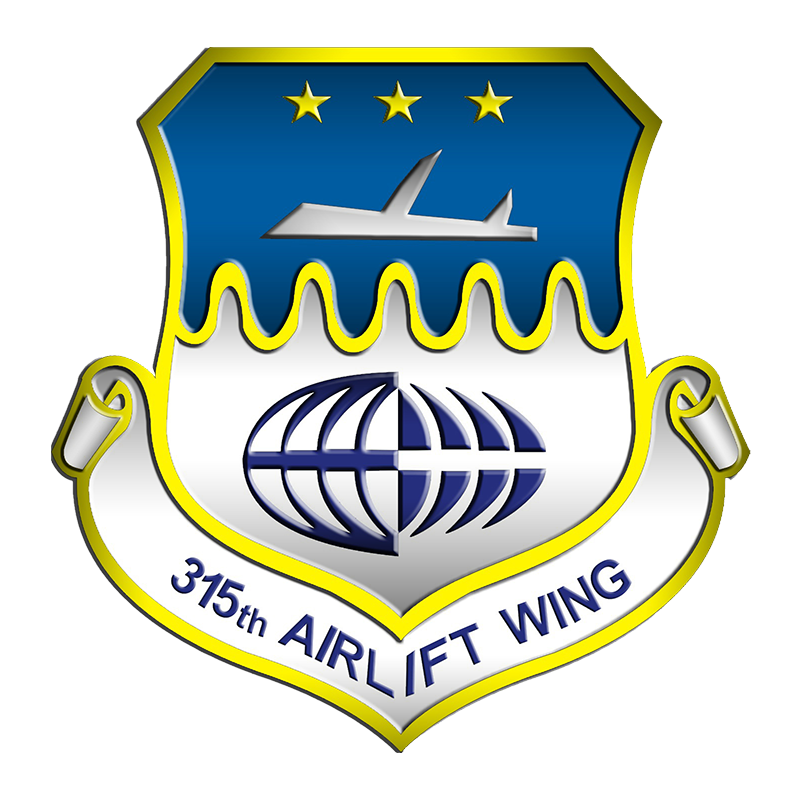
The 315th Airlift Wing, together with our active duty wing, the 437th Airlift Wing provides a large part of Air Mobility Command's Global Reach airlift capability. This rapid, flexible and responsive air mobility promotes stability in regions by keeping America's capability and character highly visible.
THE MISSION: Generate and provide combat ready forces...ready now!
VISION: Innovative combat ready Airmen
ORGANIZATION: The 315th AW has three major functional areas and nineteen subordinate units, which operate under the direction of three group commanders. These areas are operations, logistics, and support and aeromedical evacuation.
AIRCRAFT: Charleston is home to the C-17 Globemaster III aircraft. A C-17 crew consists of pilot, co-pilot, and loadmaster. Cost per unit is approximately $202.3 million. The C-17 has a cruise speed of 518 m.p.h. at 28,000 feet (Mach .74). It also has a global range with in-flight refueling. Its maximum load is 170,000 pounds, and it can fit two large buses, three helicopters, one of the Army's newest tanks or other outsized cargo. In addition it features heads-up display, can airdrop both cargo and 102 paratroopers, and is able to land on small, austere airfields--landing in as short as 3,000 feet. Aircrews of the 315th AW fly this aircraft which is assigned to the 437th AW.
BASE FACTS: Charleston AFB is a joint-use airfield, sharing two intersecting runways with Charleston International Airport. The primary runway is 9,001 feet long and the intersecting runway is 7,000 feet long. The base maintains the two runways and most of the taxiways, and security and crash rescue response for all flights.
Joint Base Charleston was the first fully operational C-17 base in the Air Force. The base is constantly involved world-wide military global reach missions and in the Denton Amendment program flying humanitarian aid on available missions to worldwide.